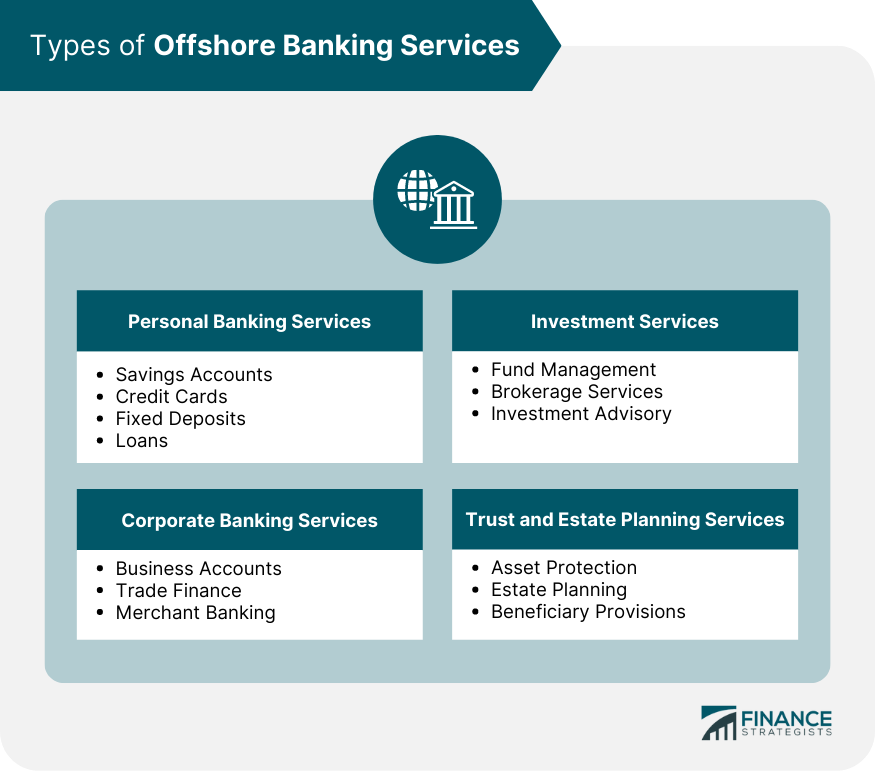Checking Out the Services Offered in Offshore Company Formations: What You Required to Know
Offshore business formations give a variety of solutions developed to assist in business success while guaranteeing compliance with lawful needs. These solutions can include company registration, legal recommendations, and arrangements for privacy through candidate directors. In addition, factors to consider around tax optimization and property security are important. Comprehending these components can significantly affect one's decision-making process. However, the complexities of steering and picking the ideal territory via regulations elevate additionally questions. What should one think about following?
Understanding Offshore Company Frameworks
What defines an overseas firm framework? An offshore company is normally signed up in a foreign jurisdiction, typically defined by favorable regulatory environments and discretion. These frameworks are made to offer legal separation between the business's possessions and its owners, enabling a variety of operational and financial benefits. Offshore firms can be developed as numerous kinds, including restricted obligation companies (LLCs), corporations, or depends on, depending upon the regulative framework of the chosen territory.
Trick functions of these frameworks include enhanced personal privacy, property security, and ease of international company transactions. Additionally, they commonly need minimal neighborhood visibility and can assist in the administration of investments throughout borders. The option of a certain offshore jurisdiction can greatly affect the operational abilities and compliance requirements of the business. Overall, recognizing the ins and outs of overseas company frameworks is crucial for investors and entrepreneurs seeking to maximize their organization approaches.
Tax Advantages of Offshore Business
Offshore firms use substantial tax advantages that can enhance success and financial effectiveness for local business owner. One of the primary advantages is the capacity for decreased company tax prices, which can be especially lower than those in the proprietor's home country. Several offshore territories give tax rewards, such as tax vacations or exceptions on certain types of earnings. In addition, offshore companies might gain from beneficial tax obligation treaties, enabling the reduction or removal of withholding tax obligations on dividends, nobilities, and rate of interest. This can cause enhanced capital and much better reinvestment possibilities. Some overseas entities can run under a territorial tax system, which only tax obligations earnings produced within that territory. This framework can be especially helpful for companies participated in worldwide trade or on the internet solutions, allowing them to maximize their tax obligation responsibilities while preserving compliance with worldwide regulations. Overall, these tax obligation advantages can significantly add to long-term monetary success.
Personal Privacy and Confidentiality Features
Exactly how can entrepreneur protect their sensitive information while gaining from international possibilities? Offshore business formations provide robust personal privacy and discretion features that interest business owners looking for discernment (Offshore Company Formations). Several territories supply nominee services, permitting people to select third events as shareholders or directors, therefore concealing their identities from public records
Additionally, stringent data security regulations in numerous overseas territories guarantee that sensitive details stays confidential. Offshore business commonly gain from boosted banking privacy, with guidelines that safeguard customer identities and economic transactions.
In addition, using personal addresses for registered workplaces lessens direct exposure to public examination.
These personal privacy procedures make it possible for local business owner to run with greater confidence, knowing their sensitive data is protected. By leveraging these attributes, entrepreneurs can concentrate on strategic growth possibilities without the constant issue of details exposure.
Asset Security Approaches
While steering through the complexities of international business, entrepreneurs should focus on possession defense to safeguard their wealth from potential risks. Offshore business formations use durable techniques for mitigating exposure to lawful cases, lender actions, and political instability. One reliable approach involves establishing a minimal liability company (LLC), which separates personal assets from service obligations, therefore providing a guard versus legal actions.
In addition, business owners can use depend hold possessions, ensuring they remain protected from financial institutions and lawful conflicts. Territories with solid possession protection regulations, such as Nevis or the Chef Islands, are usually preferred for their positive policies. Implementing appropriate insurance policy policies and diversifying investments further boosts safety, decreasing vulnerability to market changes. In general, making use of these methods within an overseas framework not only advertises wealth conservation but additionally fosters long-term economic security, permitting business owners to focus on development and technology without excessive worry over asset direct exposure.

Opening Up Offshore Bank Accounts
Opening overseas savings account involves understanding the various account types available, which can satisfy different monetary requirements. Furthermore, the documents procedure is necessary, as it usually needs certain types of identification and evidence of home. This summary will make clear the alternatives and requirements for individuals and companies seeking to develop overseas financial relationships.
Account Kind Supplied
Offshore financial institution accounts been available in various kinds, each created to accommodate various monetary needs and objectives. Individual accounts are customized for individuals seeking privacy and asset defense, while company accounts promote business purchases and administration of business funds. Multi-currency accounts are popular amongst global financiers, enabling deals throughout different currencies without excessive conversion costs. Furthermore, interest-bearing accounts use interest on down payments, appealing to those seeking to grow their properties securely. Some banks additionally offer financial investment accounts, giving clients accessibility to various financial investment chances. Each account kind might come with unique advantages and attributes, enabling clients to select the one that lines up finest with site web their financial methods and purposes. Comprehending these choices is essential for reliable offshore financial.
Needed Documentation Process
To efficiently open up an overseas bank account, possible customers have to prepare a set of specific files that please governing requirements. This typically includes a valid ticket or government-issued recognition to validate identification. Customers are also required to offer proof of house, such as an energy costs or financial institution statement, dated within the last three months. Additionally, an in-depth summary of the resource of funds is essential to guarantee compliance with anti-money laundering guidelines. Some financial institutions may request a business plan or reference letters, particularly for company accounts. Each territory might have one-of-a-kind needs; subsequently, speaking with a specialist in overseas solutions is suggested to determine all documentation is accurate and total, helping with a smoother account opening procedure.
Conformity and Governing Factors To Consider
Maneuvering the complexities of conformity and governing factors to consider is essential for any entity pursuing overseas firm developments. Entities need to abide by various international and neighborhood laws that regulate monetary tasks, tax, and corporate governance. Key regulations commonly consist of anti-money laundering (AML) laws, recognize your consumer (KYC) protocols, and coverage needs to assure transparency.
Moreover, companies see page need to stay cautious about changes in regulations that may affect their operational status. Failing to conform can result in serious fines, including penalties or the dissolution of the company. Engaging with legal and monetary experts who specialize in overseas guidelines can provide vital guidance in steering through these intricacies.
Furthermore, comprehending the implications of tax obligation treaties and global arrangements is essential for keeping compliance. Firms ought to prioritize developing robust conformity structures to mitigate threats and guarantee long-lasting sustainability in their offshore ventures.
Selecting the Right Offshore Territory
How does one determine the most suitable overseas jurisdiction for firm development? The selection of jurisdiction is essential and involves a number of aspects. One need to examine the lawful structure and regulations governing companies in prospective jurisdictions. Desirable tax obligation regimes, such as low or no business taxes, are typically a primary consideration. In addition, the political stability and reputation of the territory find more information play substantial duties in ensuring the protection of possessions and compliance with global standards.
The availability of banking services and the simplicity of doing service must not be overlooked. A territory offering durable privacy stipulations can also be beneficial for those seeking privacy. Ultimately, evaluating the expenses connected with firm formation, upkeep, and possible lawful fees is essential. By evaluating these variables, one can make an informed decision, guaranteeing that the chosen offshore territory lines up with their business objectives and operational requirements.

Frequently Asked Inquiries
How Long Does the Offshore Firm Formation Process Generally Take?

The offshore company formation procedure usually takes anywhere from a few days to several weeks. Offshore Company Formations. Aspects influencing this timeline consist of jurisdiction, documentation efficiency, and details company associated with the development procedure
What Are the Initial Costs Associated With Establishing up an Offshore Firm?
The initial expenses for establishing up an overseas company can vary commonly, commonly encompassing registration costs, lawful costs, and surcharges for services like financial institution account arrangement and compliance, typically completing numerous hundred to numerous thousand bucks.
Can Individuals Type Offshore Companies Without Professional Support?
Individuals can practically create overseas companies independently; nonetheless, they often come across complicated legal and regulative demands. Offshore Company Formations. Professional aid is advised to navigate these obstacles effectively and ensure compliance with relevant laws and regulations
What Documents Are Required for Offshore Firm Registration?
The records required for offshore business registration generally consist of identification proof, a thorough business plan, proof of address, and, in some territories, an affirmation of beneficial possession and resolutions from directors.
Exist Recurring Maintenance Costs for Offshore Companies?
Recurring maintenance costs for offshore companies are normally required to guarantee conformity with regional guidelines. These fees may consist of annual revival costs, registered representative solutions, and bookkeeping, differing by territory and specific company framework.
